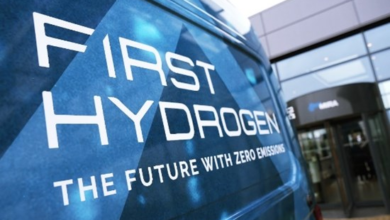Toyota to accelerate plant decarbonization efforts in Fukushima using hydrogen

Toyota Motor Corporation (Toyota) has been working with Fukushima Prefecture since June 2021 toward the development of new future cities using both hydrogen produced in Fukushima and hydrogen-related technologies developed there.
As part of these efforts, Toyota has been collaborating with the DENSO Group to use hydrogen along with renewable energy to decarbonize plants.
Toyota recently developed new electrolysis equipment that produces hydrogen from electrolyzing water using the FC stack and other technology from the Mirai. The equipment will be put into operation this March at a DENSO Fukushima Corporation plant, which will serve as a technology implementation venue to promote its widespread use going forward.
Toyota will accelerate its efforts to build a model for the local consumption of locally produced hydrogen, using electrolysis equipment to produce clean hydrogen and combust it in one of the plant’s gas furnaces.
The hydrogen utilization at DENSO Fukushima will be implemented as a project subsidized by the New Energy and Industrial Technology Development Organization (NEDO).
Toyota has positioned hydrogen as a critical fuel for promoting initiatives aimed at reducing CO2 emissions to contribute to achieving carbon neutrality. In doing so, it aims to promote the use of hydrogen not only through fuel cell electric vehicles (FCEVs) including passenger cars, commercial trucks, and buses, but also through the widespread use of fuel cell (FC) products, such as the development and test operation of FC stationary generators. To this end, Toyota is working with various industry partners in the areas of producing, transporting, storing, and using hydrogen.
Toyota has been using hydrogen for FCEVs, FC stationary generators, production at plants, etc. to date. It has also promoted transporting activities, such as the development and manufacturing of FC trucks for hydrogen transportation. In the future, Toyota hopes to contribute to expanding options for producing hydrogen using biogas generated from livestock manure in Thailand in addition to developing electrolysis equipment.
